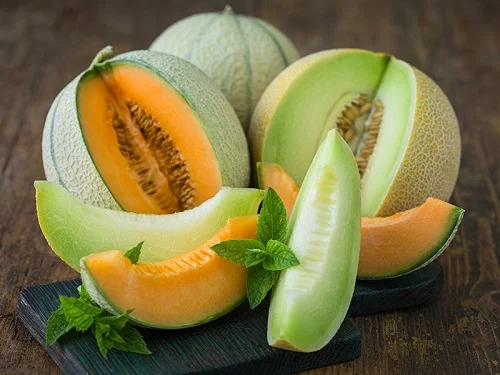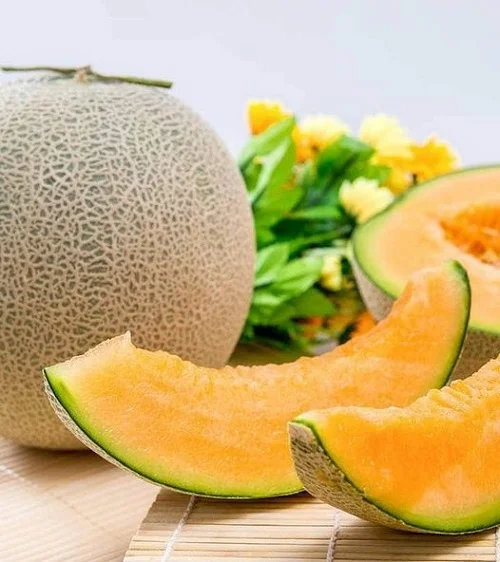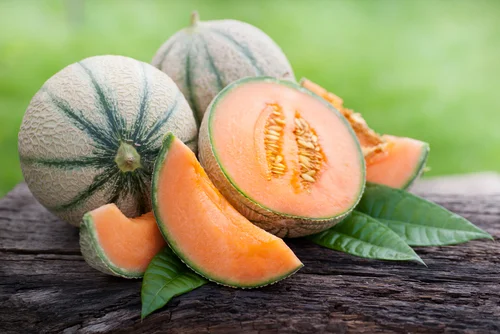Muskmelon vs Cantaloupe: A Comprehensive Comparison
When it comes to refreshing summer fruits, muskmelon and cantaloupe are popular choices for many. These two fruits may appear similar, but they have distinct characteristics and flavors that set them apart. In this article, we will delve into the world of muskmelon and cantaloupe, exploring their differences, similarities, nutritional values, and benefits. So, let's dive in and uncover the unique qualities of these delightful fruits.

Muskmelon vs Cantaloupe
1. Appearance:
Muskmelon:
Muskmelons have a rough, netted skin with a variety of colors, ranging from green to yellow to orange. They are generally round in shape and have a sweet aroma.
Cantaloupe:
Cantaloupes, on the other hand, feature a ribbed, firm skin with a beige or pale green hue. The flesh inside is orange and can be easily separated from the rind.
2. Taste and Flavor:
Muskmelon:
Known for their sweetness, muskmelons have a juicy, aromatic flesh that is often described as floral and tropical. They offer a delightful blend of sweetness and tanginess.
Cantaloupe:
Cantaloupes have a milder, more delicate flavor compared to muskmelons. Their flesh is succulent, slightly musky, and provides a refreshing taste with subtle hints of sweetness.

Muskmelon
3. Texture:
Muskmelon:
Muskmelons have a firm, yet smooth texture. Their flesh is juicy and tender, making them ideal for various culinary uses, including salads, smoothies, and desserts.
Cantaloupe:
Cantaloupes possess a softer, more delicate texture. Their flesh is exceptionally juicy, almost melting in your mouth, which makes them perfect for eating as is or incorporating into fruit salads.
4. Varieties:
Muskmelon:
There are several popular varieties of muskmelons, including the Cantalupo, Honeydew, Crenshaw, and Galia. Each variety has its own unique characteristics, flavors, and nutritional profiles.
Cantaloupe:
The term "cantaloupe" is often used interchangeably with muskmelon in the United States. However, true cantaloupes, known as European cantaloupes, have a distinct flavor and are less commonly found.

Cantaloupe
5. Nutritional Value:
Muskmelon:
Muskmelons are rich in vitamins A and C, providing essential antioxidants that support a healthy immune system. They are also a good source of dietary fiber and potassium.
Cantaloupe:
Cantaloupes are low in calories and high in vitamin A and vitamin C. Additionally, they contain beta-carotene, which promotes healthy skin and eyesight.
6. Health Benefits:
Muskmelon:
Due to their high water content, muskmelons aid in hydration and promote healthy digestion. They are also known for their potential anti-inflammatory and antioxidant properties.
Cantaloupe:
Cantaloupes are beneficial for maintaining healthy blood pressure levels due to their potassium content. They also support healthy skin, boost immunity, and aid in weight management.
In summary, while muskmelon and cantaloupe share similarities in terms of their appearance and nutritional value, they have distinct flavors, textures, and varieties. Muskmelons offer a sweet and tangy flavor with a firm texture, while cantaloupes provide a milder taste and softer texture. Both fruits bring unique health benefits to the table, making them refreshing and nutritious choices during the summer season. Whether you prefer the sweet and tangy flavor of muskmelon or the subtle and refreshing taste of cantaloupe, both fruits offer a burst of summertime goodness. So, explore the markets, try different varieties, and savor the unique qualities of muskmelon and cantaloupe as you indulge in the abundance of nature's sweet treasures.